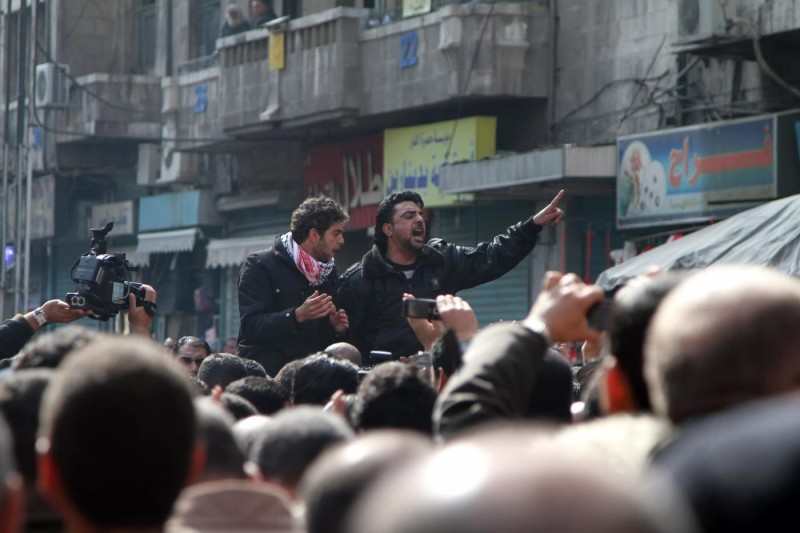In 2016, Jordanian lawmakers gathered to decide whether to repeal a law which banned Jordanians with dual citizenship from holding senior political office. The issue had provoked a national debate and the senate’s vice president, former Prime Minister Samir Rifai, made his position clear.
“From a personal and private point of view, I do not generally like for a Jordanian to hold another nationality,” Rifai wrote on Facebook.
“This applies to my family and those close to me,” he added. “However, this does not negate the right of a Jordanian to hold a foreign nationality.”
Rifai’s tenure as prime minister had been cut short several years earlier in January 2011, when Arab Spring protests demanded his ouster. But he has stayed active in politics, serving in the senate since 2013 and remaining one of King Abdullah’s closest allies.
Not long after his Facebook post, lawmakers scrapped the ban on dual nationality for politicians.
Two years later, Rifai quietly purchased a second citizenship from the Caribbean nation of Dominica for himself, his former wife, and three children, OCCRP and partners found.
Dominica’s citizenship-by-investment program at the time would have allowed the family to buy citizenship through a $200,000 contribution to a development fund or an investment in local real estate, plus other fees.
The Rifais secured their documents — which allow visa-free travel to many parts of the world — through Range Developments, a company that specializes in brokering Caribbean passports and property development, according to a client list obtained by reporters.
Dominica: Passports of the Caribbean
In an initial response to reporters’ questions, a Jordan-based lawyer for Rifai said the politician and his family “have at all times acted correctly and in accordance with the proper protocols and procedures” in buying their Dominica passports.
He said that Rifai’s “reasoning for obtaining a Dominica passport was so that his dependents could benefit from that passport for ease of travel or options for global work.” To secure the new nationalities, the family made an investment in a hotel on the island managed by Kempinski Hotels, a luxury hotel management firm, he said.
The lawyer said that Rifai passed “detailed checks and due diligence” measures to secure the passport, and that he has never used it nor sworn fealty to the Caribbean island. “Please note that Dominica does not require any kind of oath of allegiance or loyalty to it as part of its CBI [citizenship-by-investment] Scheme,” the letter continued.
Multiple passport brokers, as well as the government of Dominica, do indicate on their websites that an oath is a required step in the process. "A person shall not be granted a certificate of naturalization until he has first taken the oath or affirmation of allegiance," according to the Commonwealth of Dominica citizenship act.
Mehdi Monfared, who runs a brokerage that sells Dominica passports, told OCCRP that the oath is taken after an application is approved, and before the individual is officially registered as a Dominican citizen. “If not taken, citizenship will be refused,” he said. “No exemption is granted. Taking the oath is mandatory.”
In a later response, a London-based law firm did not directly say whether Rifai had taken such an oath. The firm said Rifai had not said that officials should have to give up dual citizenship in all cases. “The issue only arose if an individual was required to swear a second absolute oath of allegiance to another country which was incompatible with a similar oath they have previously given,” the firm wrote.
The firm pointed out that Rifai’s Facebook post pre-dated the recent constitutional changes allowing dual citizenship for senior officials.
“No distinction is drawn between countries which require an oath of allegiance and ones which do not. Our client has sworn an oath to uphold the Jordanian constitution so he does not wish nor need to comment further on this matter at this point,” the lawyers wrote.
Asked whether Rifai took any oath, Range Developments said it did not know and referred reporters to Dominican authorities. Dominican authorities did not respond to questions about whether an oath is necessary.
Taking Two Oaths
The question of dual citizenships had become a controversial issue after Arab Spring protesters demanded an end to neoliberal policies they viewed as orchestrated by Bassem Awadallah, a dual Jordanian-American citizen and former head of the Royal Court.
After Rifai’s resignation in the wake of the same wave of protests, Jordan’s new cabinet passed a number of legal amendments to satisfy the calls for change.

One such amendment concerned dual citizenship. Under the new rules, dual citizens could no longer sit in government. Several politicians, including two senators — the Jordanian-Canadian businessman Talal Abu-Ghazaleh and the prominent British-Jordanian surgeon Dr Khaled Sharif — resigned as a result.
“I was the first official to resign after the new amendment was issued because I respect the law, whether I approve or reject it,” Abu-Ghazaleh, chairman of Talal Abu-Ghazaleh Global, told OCCRP.
Others begrudgingly revoked their second citizenship in order to comply. Emad Bani Younes, a parliamentarian at the time, announced that he had given up his U.S. citizenship, but lamented the new law as a “great injustice” to Jordanians.
But five years later, with the Arab Spring protests an increasingly distant memory, some decision-makers worried the law was preventing Jordan from benefiting from broader “technocratic, and political competencies,” Bassim Haddadin, a current senator who was an MP at the time, told OCCRP. Jordan was losing out on expertise, it was felt, by keeping dual citizens out of high office.
The debate divided the country into two camps: those who believed that relaxing the rule would lead to more inclusivity and progress, and those who felt it threatened the “sanctity of the oath” to Jordan’s king.
Rifai’s April 2016 Facebook post outlined his thoughts on the matter, including what he saw as two different types of dual citizens.
Jordanians who have a dual citizenship because they were born abroad, or inherited such a right from a parent, should not be excluded from high office, he wrote. The “problem,” Rifai continued, lay with those who requested naturalization from another country, and who were required to take an “absolute oath” of allegiance to that country.
Such oaths, he said, could conflict with the oath taken to become a deputy, minister or senate member in Jordan.
Rifai’s patriotic Facebook post did well with his followers, with mentions of “loyalty” and “homeland” peppered in the comments. Nevertheless, Jordan’s dual citizenship law was abolished the following month. In announcing the news, the prime minister at the time, Abdullah Nsour, said that “there should be no worry so long as there is an oath of allegiance towards the King and to the constitution.”
Two years later, in 2018, the Rifais were officially Dominican.





